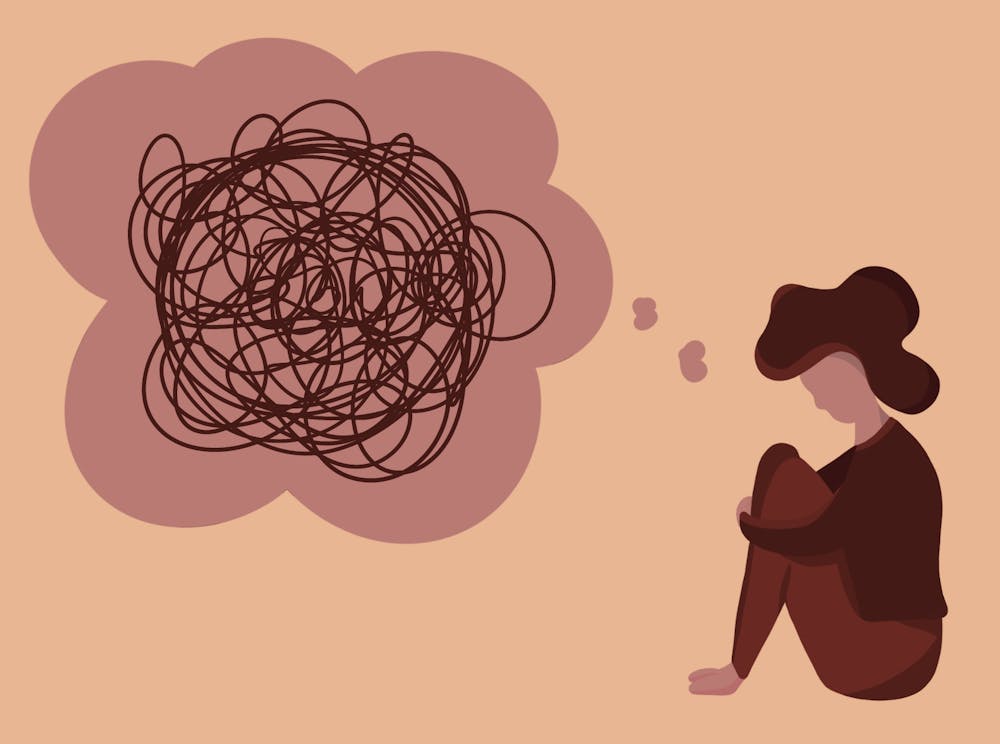This school year has taken away fall and spring break from students because of COVID-19, negatively impacting students’ mental health.
Before the anticipated calendar for the spring 2021 semester was released in early October, it was in question whether or not USC would have a normal spring break. Many students were disappointed but not surprised when they found out about the new schedule.
Instead of the one full week students would usually get, the school is giving the students four "wellness days" scattered throughout the semester.
The university is trying to limit the spread of COVID-19, but at what cost? According to a survey done in April 2020 by the program Active Minds, 80% of 2,086 students surveyed said COVID-19 has negatively impacted their mental health, and 91% of those students said they were experiencing stress and anxiety due to the pandemic.
By eliminating fall break and now spring break, the university is creating a drain on students’ mental health. Going without breaks the entire school year is challenging for students.
First-year visual communications student Anna Heidel said she understands the reasoning.
“It would be nice to have a spring break," Heidel said. "USC and President Calsen are trying to make the best out of this situation. So, I’m empathetic to what’s going on; however, I would have liked to have a spring break.”
However, first-year marketing student Anne Fogle Jones said she was skeptical of the effectiveness.
“My only fear is, like, it’s not actually going to be a mental health day; it’ll just be a remote learning day," Jones said. "I don’t think one day — four days scattered along isn't going to have the same effect as a week-long break would from all the work.”
Wellness days are placed periodically throughout the semester, and professors are supposed to ensure there are no classes, assignments or tests on these days. However, since they occur between other school days, wellness days defeat the purpose of a break as students will likely have a test or assignment due the day after.
Hitting that rough patch in the middle of the semester when there is typically a break can be hard to get over.
First-year civil engineering student Macy Mekiliesky said she thinks the new spring break schedule would negatively impact students' mental health.
“Some people need that break to just kind of reset and get back the motivation to do work,” Mekiliesky said. “Especially when they have all these exams, midterms piled on top of each other and then no break after that, just jumping right into new content, I think that definitely has a negative impact.”
This semester was a flurry of rushed assignments, making it difficult to actually retain material. Because there was no fall break, the weeks felt never-ending. The lack of spring break will bring back this feeling of being lost in an endless to-do list, stuck in this period of exhaustion.
Being safe is essential. This virus is no joke and needs to be taken seriously, but there are options outside of wellness days. Instead of taking away spring break, the break could be pushed back towards the end of the semester. Such as in the fall, students could go home after the break and take exams online. Because this break would be longer than Thanksgiving break in the fall, it would help students recharge and prepare for final exams. There are many drained students due to a lack of fall break who are scared of what’s going to happen next semester.
If someone feels like their mental health isn’t doing the best right now, that’s okay. There are campus resources that students have access to, such as counseling. Always talk to your friends and your professors; most of them will understand. Your mental health comes first.

